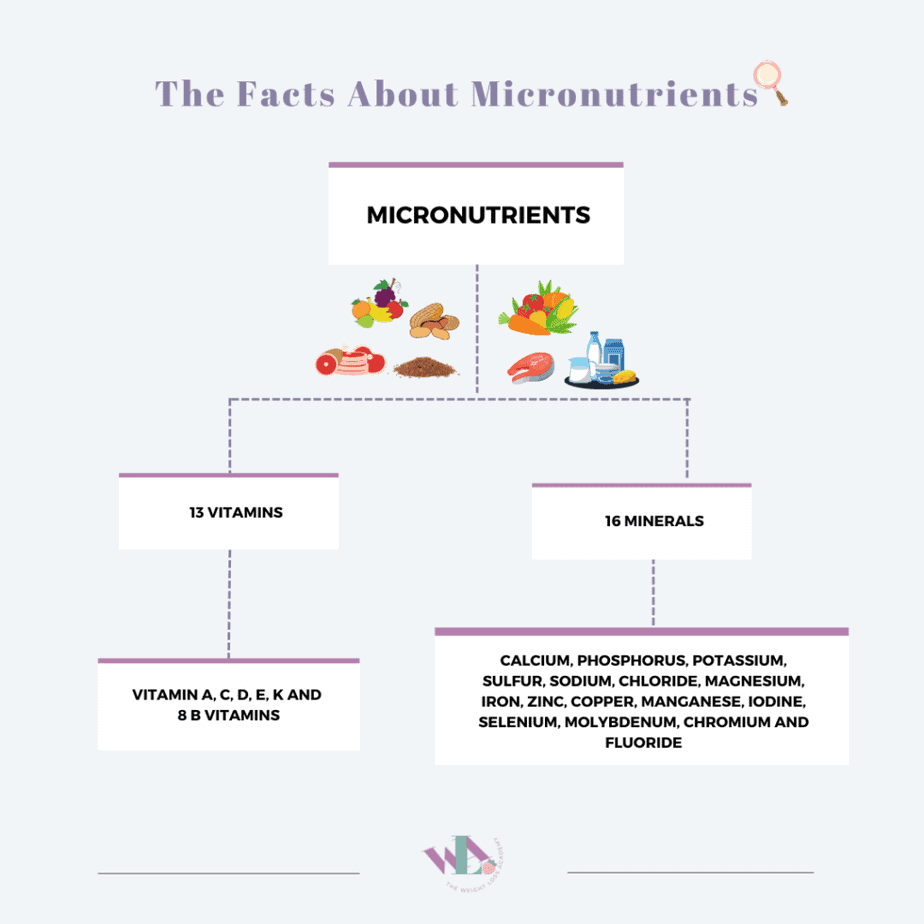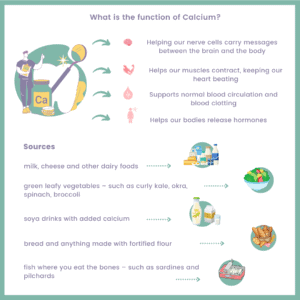
Over the last few weeks, we have compiled a series of posts about macronutrients, including carbohydrates, protein and fats. We now want to focus on the micronutrients; vitamins and minerals.
👀 What are they?
Micronutrients are vitamins and minerals needed by the body in very small amounts. However, their impact on a body’s health is critical, and deficiency in any of them can cause severe and even life-threatening conditions. They perform a range of functions, including enabling the body to produce enzymes, hormones and other substances needed for normal growth and development. Unlike macronutrients, micronutrients are not a source of calories.
Vitamins and minerals are not chemically related to each other but are grouped together based on the smaller quantities needed for optimal health.
🌿 VITAMINS
Vitamins are organic compounds found in small amounts of foods. They are essential for health as they are required for normal growth, development and function. There are 13 essential vitamins, A, C, D, E, K, and 8 B vitamins.
⛏️ MINERALS
Minerals are inorganic elements that come from soil and water and are absorbed by plants or consumed by animals. Minerals play important roles in maintaining blood pressure, fluid & electrolyte balance and bone health. They also make new cells, deliver oxygen to cells and contribute to normal muscle and nerve functioning. There are 16 essential minerals, calcium, phosphorus, potassium, sulphur, sodium, chloride, magnesium, iron, zinc, copper, manganese, iodine, selenium, molybdenum, chromium and fluoride.
☀️ With the exception of vitamin D which can be synthesised by the skin, micronutrients are not produced in the body and must be derived from the diet.
🗓️ We will be sharing a series of posts looking at the role and sources of vitamins and minerals over the coming weeks – so stay tuned for more info



